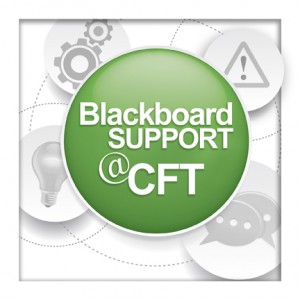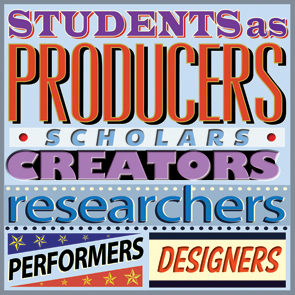 |
||||||
Gabriel Briggs
I believe in inquiry-based assignments that require substantive rhetorical considerations. The classroom environment should be thoughtful and lively. Research should not be blind or bland, students should describe, define, evaluate, analyze, propose, and discuss. For instance, I supplement novels with a variety of primary texts. These texts help steep students in the period and allow them to recognize the critical conversations generated around a particular historical moment. I often require students to workshop on assignments as a way to promote camaraderie, and to provide a less formal or intimidating venue for generating ideas that lead to contemplation, discussion, and written communication. I use journal assignments as a way for students to establish a dialogue with the ideas present in the words of historical people and documents. I think it is important that students not only summarize these materials, but that they analyze particular strategies within each document, and provide personal reactions to each piece as a way to deepen their understanding of textual analysis. Once they become familiar with the terms and concepts within literature, students are better prepared to engage new texts, and to situate their own arguments within a larger critical debate, which, in turn, helps to foster class discussion and to generate enthusiasm about each text we discover.
|
|
|
The program is designed to help graduate student-faculty teams build expertise in developing online instructional modules grounded in good course design principles and our understanding of how people learn. STEM faculty members partner with graduate students or postdocs to design and develop online modules for integration into a course. The teams investigate the use of these modules, collecting data about the effectiveness of the module for promoting student learning. You can view a gallery of past BOLD projects on the BOLD website.
![]()
Blackboard Drop-in Sessions to Feature Grade Center
Drop-in Support Hours for Spring Semester
Blackboard Support at the CFT will be offering drop-in training and support for the spring semester for faculty, graduate students, and staff using Blackboard. Come get technical and pedagogical support from a team of Blackboard specialists during our drop-in support hours. We will begin each drop-in session with quick, 10-minute training on a topic related to the grade center, but feel free to bring any questions or issues you want to resolve.
Drop-in sessions are Mondays from 1-3pm
January 11 - Grade Center: Column Organization
January 25 - Grade Center: Inline Grading
February 1 - Grade Center: Weighted Column
February 8 - Grade Center: Edit Column Information
February 15 - Grade Center: Rubrics
February 22 - Grade Center: Needs Grading
February 29 - Grade Center: Create/Total/Average Column
March 14 -Grade Center: View/Clear Attempts
March 21 - Grade Center: View Grade Details
March 28 - Grade Center: Points and Percentages
April 4 - Grade Center: Show/Hide Columns
April 11 - Grade Center: Reports
April 18 - Grade Center: Smart Views
April 25 - Grade Center: Grading Periods
Taking our Blackboard Workshops on the Road!
Many of you have visited us for Blackboard trainings and drop-in hours here at the CFT. What you may not know is that we have also taken that support model on the road to various centers and departments across campus. If you work with a group that you think might benefit from a tailored training/support experience, we would love to visit them wherever they may be housed on campus.
We have three 30 minute training sessions to choose from (Creating and Grading Assignments on Blackboard, Using Media on Blackboard, and Academic Integrity Tools for Blackboard) that we are excited to share. After our presentation, the Blackboard support team can remain on site for 30-60 minutes to work one-on-one with faculty, TAs, staff, or whomever, helping to solve problems and work on specific courses.
Please contact us at blackboard@vanderbilt.edu for more information.
![]()
From the Stacks...
 |
Minds Online: Teaching Effectively with Technology
by Michelle D. Miller
This book offers faculty a concise, nontechnical guide for those who seek to advance learning in this swiftly changing technological landscape. Drawing on the latest findings in neuroscience and cognitive psychology, the author explores how attention, memory and higher thought processes can be enhanced through technology-aided approaches. The text presents innovative ideas on how to use multimedia effectively, promote retention of course material, take advantage of learners’ existing knowledge and motivate students to do their best work.
Available in the Center for Teaching library.
Vanderbilt University Center for Teaching
1114 19th Avenue South, Nashville, TN 37212 | 615-322-7290
http://cft.vanderbilt.edu
Click here to unsubscribe from the CFT News and Events LISTSERV
Except where otherwise noted, content on this site is licensed under a Creative Commons Attribution 3.0 License.




 L to R: Kristin Droege, Chemistry, working with Cynthia Brame, Senior Lecturer in Biological Sciences; Brandt Eichman, Associate Professor of Biological Sciences; Lauren Jackson, Assistant Professor of Biological Sciences; and Charles Singleton, Professor of Biological Sciences
L to R: Kristin Droege, Chemistry, working with Cynthia Brame, Senior Lecturer in Biological Sciences; Brandt Eichman, Associate Professor of Biological Sciences; Lauren Jackson, Assistant Professor of Biological Sciences; and Charles Singleton, Professor of Biological Sciences